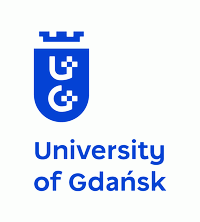Computer
A computer is a device that can be instructed to carry out sequences of arithmetic or logical operations automatically via computer programming. Modern computers have the ability to follow generalized sets of operations, called programs. These programs enable computers to perform an extremely wide range of tasks.
Computer Science
Computer science is the study of the theory, experimentation, and engineering that form the basis for the design and use of computers. It is the scientific and practical approach to computation and its applications and the systematic study of the feasibility, structure, expression, and mechanization of the methodical procedures (or algorithms) that underlie the acquisition, representation, processing, storage, communication of, and access to, information. An alternate, more succinct definition of computer science is the study of automating algorithmic processes that scale. A computer scientist specializes in the theory of computation and the design of computational systems. See glossary of computer science.
Faculty
Faculty may refer to:
Mathematics
Mathematics (from Greek μάθημα máthēma, "knowledge, study, learning") is the study of such topics as quantity, structure, space, and change. It has no generally accepted definition.
Physics
Physics (from Ancient Greek: φυσική (ἐπιστήμη), translit. physikḗ (epistḗmē), lit. 'knowledge of nature', from φύσις phýsis "nature") is the natural science that studies matter and its motion and behavior through space and time and that studies the related entities of energy and force. Physics is one of the most fundamental scientific disciplines, and its main goal is to understand how the universe behaves.
Science
Science (from Latin scientia, meaning "knowledge") is a systematic enterprise that builds and organizes knowledge in the form of testable explanations and predictions about the universe.
Physics
As soon as we venture on the paths of the physicist, we learn to weigh and measure, to deal with time and space and mass and their related concepts, and to find more and more our knowledge expressed and our needs satisfied through the concept of number, as in the dreams of Plato and Pythagoras.
D'Arcy Wentworth Thompson, On Growth and Form (1917)
Physics
There have indeed been civilizations upon your planet that understood as well as you, and without your kind of technology, the workings of the planets, the positioning of the stars -- people who even foresaw "later" global changes. They used a mental physics. There were men before you who brought back data quite as "scientific" and pertinent. There were those who understood the "origin" of your solar system far better than you. Some of these civilizations did not need spaceships. Instead, highly trained men combining the abilities of dream-art scientists and mental physicists cooperated at journeys not only through time but through space.
Jane Roberts, in The “Unknown” Reality: Volume One, p. 196, Session 702
Science
Take a look at George Gamow, who is now recognized as one of the great cosmologists of the last hundred years. I speculate that he probably didn't win the Nobel Prize because people could not take him seriously. He wrote children's books. His colleagues have publicly stated his writing children's books on science had an adverse effect on his scientific reputation, and people could not take him seriously when he and his colleagues proposed that there should be a cosmic background radiation, which we now know to be one of the greatest discoveries of 20th-century physics.
Michio Kaku, in "Borrowed Time: Interview with Michio Kaku".
